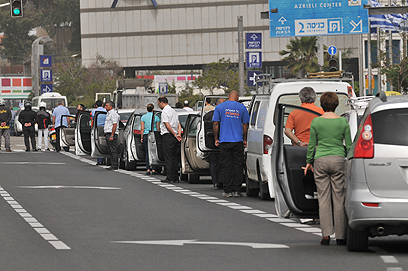Written by Soof Hacohen
Yesterday, April 16, 2015, was Yom Ha’Shoah — Israel’s Holocaust Remembrance Day. At around 11:00 a.m., millions of Israelis across the nation stood in silence for approximately 60 seconds to commemorate the six million Jews who were murdered in the Holocaust. Offices, schools, shopping malls, cafés, freeways, and city streets came to a stop, and the men, women, and children of Israel bowed their heads in silence for one full minute as the sirens blared and echoed the cries of Am Yisrael’s passed brothers, sisters, parents, grandparents, cousins, neighbors, friends, and ancestors.
The moments of silence that take place during Israeli memorial days are very strange to any outsider. Some tourists document this powerful minute when an Israeli butcher and his customer stand side by side in a hauntingly silent marketplace and bow their heads. All of Israel is united not only in sorrow, but also in hope that Jews around the world will never have to face such atrocities again. For a very rare moment, the nation is united in grief and mutual understanding.
In this week’s Torah portion, Parashat Shemini (Leviticus 9:1-11:47), G-d commands Aaron to make a sacrifice to atone for the sins that the Hebrews committed. Aaron does as G-d commands; however, the sacrifice is interrupted when Aaron’s sons, Nadav and Avihu, create their own fire and bring it in front of G-d. According to Leviticus Rabbah (20:4), the two were also intoxicated at the time. In my interpretation, G-d is furious with their fire because He had not commanded them to make it or approach him in any manner. The text says that G-d creates a fire that engulfs Nadav and Avihu and burns them both to death. It is noted in this parashah that Aaron remained silent during the murder of his children.
Aaron’s silence was and still remains perplexing to me. The phrase used in the parashah is “Va’Yidom Aharon” which I interpreted as not only that he was silent, but also that he was still due to the modern Hebrew definition of the word “dom.” I’ve been told that there is nothing more devastating than for a parent to lose a child. For Aaron to remain unmoved while his sons are taken from this earth without so much as a tear or a flinch cannot be overlooked. Aaron’s heart was filled with grief and perhaps even anger, but because of his reverence for G-d and his ability to remain level-headed, his exterior remained stern and unchanging.
Silence has a healing quality. Without saying anything, we express our grief internally, and through this expression, achieve closure and become able to move onto daily happenings and responsibilities. Although the circumstances are different, I think the message about silence conveyed in the parashah is one from which we, as leaders of busy, hectic, dramatic lives, can benefit. Rarely are we able to take a moment of silence to compose ourselves, reflect, mourn, contemplate, and/or come to conclusions. In the instance of memorial days or other intensely trying life events, there may be considerable added value to doing so.
____________
This article is part of Ha’Am’s Friday Taste of Torah column. Each week, a different UCLA community member will contribute some words of Jewish wisdom in preparation for Shabbat.

